Thursday, March 2
| 10:30 a.m.–12:30 p.m. | "Paint by Number: The Making of a Writer," Cynthia Herron [Sharon Wright], Kaneko Auditorium Cynthia Herron will return to ICL to present a slide-lecture on her process behind writing Paint By Number: An Artist’s Quest for Meaning, which was published in September 2016. In the book, she seeks clarity on her artist’s vision and voice as art, nature, and family vie for attention. She journeys from east coast to west, from Alaska to Taos, and finally from Arizona to Oregon. While writing, she learned about plot structure, character development, and dialogue. Cynthia will show us her self-publishing process and share some insights on being a writer as well as a painter.
|
| 1:30 – 3:30 p.m. | "Breaking Barriers–The Unsung Heroes of STEM (Science, Technology, Engineering and Math)," Gloria Holland [Anne Bowden], Kaneko Auditorium This docu-drama explores American women who have made exceptional strides in the STEM fields, yet who remain relatively unknown to the general public. It is presented to commemorate Women’s History Month. The audience will learn about women Nobel Prize winners, astronauts, mathematicians, scientists, architects, engineers, and inventors as the actors invite the audience to celebrate the accomplishments of these unsung women. This is not a “typical” Readers’ Theater, as there is some audience participation, humor, and action! Five of the ICL members in the cast have joined ICL in 2015 or 2016. The entire cast includes: Karen Bender, Chris Duval, Erma Hoffman, Kristi Bowman, Elaine Smith, Jo Ann Von Borstel, and Vicki Hardin Woods.
|
Tuesday, March 7
| 10:30 a.m.–12:30 p.m. | "The History of the Indians of Oregon and Why It Is Important to Know," Karen Trucke, Kaneko Auditorium
ICL Member Karen Trucke is our presenter. |
| 1:30 – 2:30 p.m. | "A Skeptic's Guide to American History Video Series: Andrew Jackson--An Odd Symbol of Democracy," Professor Mark A. Stoler [Bob Muir], Kaneko Auditorium The election of Andrew Jackson to the presidency in 1828 ushered in a new era in U.S. history, one in which property qualification for voting disappeared and the nation became truly democratic. Yet Jackson was an odd symbol of democratic reform: He was not himself a "common man," and many of his policies he championed would not be considered democratic today. This lecture's careful examination of the age of Jackson reveals much about the nature of American democracy--both in his time and today. Also of continuing relevance are observations from a contemporary study, Democracy in America by Alexis de Toqueville (1835).
|
| 3:30–5:30 p.m. | "Checkpoint: ICL Members Only," Mark Kasoff, Kaneko Auditorium At least once each semester we set aside a time for member feedback. So, how are we doing? And for new members, how are things going so far? This is the session to get your questions answered. Executive Director Mark Kasoff will moderate the discussion. |
Thursday, March 9
| 10:30 a.m.–12:30 p.m. | Art Potpourri, Sharon Wright, Kaneko Auditorium The following ICL members will share their art and/or favorite art or art history topic. • Evelynn Smith - ART • Jinx Brandt - John Singer Sargent & Madame X • Bill Foster - Art Deco Architecture & Design • Bob Plantz - Wyeth's Christina's World • Priscilla Hibbard - Georgia O'Keefe |
| 1:30 – 3:30 p.m. | "Beauty is in the Air. On the Historical and Social Values of Aesthetic Reflections," Ricardo de Mambro Santos [Sharon Wright], Kaneko Auditorium In the Italian Renaissance, conversations focusing on the goals, means and aims of the arts have become a recurrent theme among humanists, especially in their sophisticated reflections on the nature of Poetry, Music and, above all, Painting. In these conversations, notions as complex and variable as “Beauty” and “Ugliness” played a central role and contributed significantly to the emergence of critical categories such as “Judgment” and “Taste.” By the end of the eighteenth century, these reflections would lead ultimately to more systematic philosophical disquisitions – within the boundaries of the field known as Aesthetics – conceptually gravitating around the notions of “Experience” and “Critique.” Taste became a special form of Knowledge. In this ICL talk, Prof. Ricardo De Mambro Santos will explore these stimulating issues in Early Modern times in the attempt to reassess the value of aesthetic paradigms also in today’s society, examining, in particular, the interplay of personal preferences and socially-shared tendencies as equally important factors in the definition of Art as a cognitive process.
|
Tuesday, March 14
| 10:30 a.m.–12:30 p.m. | Play: Agatha Christie's "The Mousetrap," [Franca Hernandez], Kaneko Auditorium Eight people are gathered in a country manor house near a remote village. A sudden blast of winter has turned the roads icy and impassable leaving the people, who have come to spend a holiday at Monkswell Manor Guest House, enduring the isolation of the snow storm – and each other. Mollie and Giles Ralston, the guest house owners, and their guests have no other option but to make the best of it – however, the murderer has other ideas. The Mousetrap has run continuously for over 60 years in London’s West End. With its debut in 1952, it has become the longest running play in the history of London’s St. Martin’s Theatre. The story was adapted from a radio play Three Blind Mice written in 1947 for Queen Mary at her request for her 80th birthday. Christie obliged and donated her fee of one hundred Guineas [£100 plus 100 shillings, i.e., £105) to the Southport Infirmary Children’s Toy Fund. The idea for the play came from a real-life news story which took place in 1945 about two brothers who had been abused in foster care, one of whom died as a result. The story shocked the country and was instrumental in changing the laws surrounding foster care. When Christie was ready to adapt the radio play for the theatre, there was already a stage play titled Three Blind Mice with a totally different story. Christie then renamed her work The Mousetrap which you will see describes the play perfectly. Although her grandson, Mathew Prichard, at age nine had wanted a bicycle for his birthday, his gran instead gifted him the rights to this play saying, “Mathew, of course, was always the most lucky member of the family, and it would be Mathew’s gift that turned out to be the big money winner.” The contract terms of the play state no film version may be made until the play has ceased its run and only after six months have lapsed. This has not to date occurred. |
| 1:30 – 3:30 p.m. | Play: Agatha Christie's "The Mousetrap," [Franca Hernandez] Continued, Kaneko Auditorium "The Mousetrap" continues into the afternoon. CAST GRETCHEN JENSEN: MOLLIE RALSTON CREW FRANCA HERNANDEZ: DIRECTOR |
Thursday, March 16
| 10:00 | Sign-ups for the April 11 Field Trip, Kaneko Auditorium Sign-ups for the (4/11) ICL field trip start today. Bring $25 check and see Carol/George Moeller to sign up. |
| 10:30 a.m.–12:30 p.m. | "Profiles in Curiosity–Explorers, Naturalists, Even Pirates!" Janet Adkins, Kaneko Auditorium
This presentation, led by ICL member Janet Adkins, will cover the remarkable lives of some used-to-be famous men, including a wonderful video about the life of the Scotsman David Douglas. |
| 1:30 – 2:30 p.m. | "A Skeptic's Guide to American History Video Series: The Second Great Awakening--Enduring Impacts," Professor Mark A. Stoler [Bob Muir], Kaneko Auditorium
Dr. Mark Stoler, who holds a Ph.D. in History from the University of Wisconsin, is Professor Emeritus of History at the University of Vermont. An expert in U.S. foreign relations and military history, as well as the origins of the cold war, Professor Stoler has also held teaching positions at the United States Military Academy, the Army Military History Institute, the Naval War College, and-as a Fulbright Professor-the University of Haifa, Israel. He is the recipient of the University of Vermont's Kroepsch-Maurice Excellence in Teaching Award, the George V. Kidder Outstanding Faculty Award, and the University Scholar Award, as well as the Dean's Lecture Award for Outstanding Scholarship and Teaching, awarded by the university's College of Arts and Sciences. Professor Stoler also has been honored as an author when his Allies and Adversaries: The Joint Chiefs of Staff, the Grand Alliance, and U.S. Strategy in World War II received the Society for Military History's Distinguished Book Award for 2002. The book is one of several he has written or cowritten, including Allies in War: Britain and America Against the Axis Powers, 1940-1945; Debating Franklin D. Roosevelt's Foreign Policies, 1933-1945; Major Problems in the History of World War II; George C. Marshall: Soldier-Statesman of the American Century; and The Politics of the Second Front: American Military Planning and Diplomacy in Coalition Warfare, 1941-1943. |
| 2:30–3:30 p.m. | "Favorite Books," Erin Hanni, Kaneko Auditorium Longtime ICL Legend, Erin Hanni, will bring her boundless energy and humor to the end-of-semester sharing of favorite books of several ICL members, whose identity will be announced later. Contact Erin to volunteer! |
| 3:30–5:30 p.m. | Movie screening: "The Ballad of Little Jo", Kaneko Auditorium This movie will be screened as preparation for the presentation by Ken Nolley on Tuesday, March 21. Those unable to stay this afternoon may view the movie on Tuesday morning, March 21, from *:00 am to 10:00 am. |
Tuesday, March 21
| 8:00-10:00 a.m. | Movie screening: "The Ballad of Little Jo", Kaneko Auditorium This movie will be screened in preparation for today's presentation by Ken Nolley. |
| 9:00–10:30 a.m. | March ICL Board Meeting, TBA |
| 10:30 a.m.–12:30 p.m. | "More Than Just a Story: Evidence of the Making in the Movie," Ken Nolley [Tom Hibbard], Kaneko Auditorium We go to the movies to encounter a story, but that story is conveyed solely through images and sounds. If we wish to dig deeper into the constructive devices of the film and the project it sets for us, we need to attend to those constructive elements. This session will focus particularly on the gaze of the camera that determines the nature of the images, as well as the way that the camera’s gaze creates a relationship between the gaze of the characters in the film and the gaze of the audience in the seats. We will use two films particularly that can be viewed before the session to set up the discussion. Both are westerns, both are based on historical incidents that took place in eastern Oregon, and both are directed by women: The Ballad of Little Jo (Maggie Greenwald, 1993), and Meek’s Cutoff (Kelly Reichardt, 2010).
IMPORTANT: In preparation for the class discussion, view homework for class of 3/21/17 (Nolley) The DVD is on reserve in the Hatfield library. It is also available on DVD from Netflix, and it appears that it can be streamed on VUDU, iTunes, You Tube, and perhaps other venues. Viewing will also be available after class on Thursday, March 16, 3:30 to 5:30 pm or alternatively before class on Tuesday, March 21, 8:00am to 10:00 am. |
| 1:30 – 3:30 p.m. | "Ludlow and Davey McGravey: History, Poetry and Memory," David Mason [Anne Bowden], Kaneko Auditorium The Greek word istoría (history) means “inquiry,” but also "story," with no guarantee of absolute truth or accuracy. All of our earliest stories are written in verse, which arises from a culture of memory. Poetry, then, is part of the memory of the tribe, and teaches by reminding us who we are. David Mason's verse novel, Ludlow, is an epic of Amerian identity, climaxing in the Ludlow Massacre of 1914. His children's book, Davey McGravy, deals with grief and imagination and the natural world. The Brain Pickings website wrote of it: "Only a rare poet can merge the reverence of Thoreau with the irreverence of Zorba the Greek to create something wholly unlike anything else — and that is what Mason accomplishes in Davey McGravy." In this talk Mason will perform excerpts from both books, exploring the connections between history and dream, landscape and identity, and why poetry is the essence of stories. 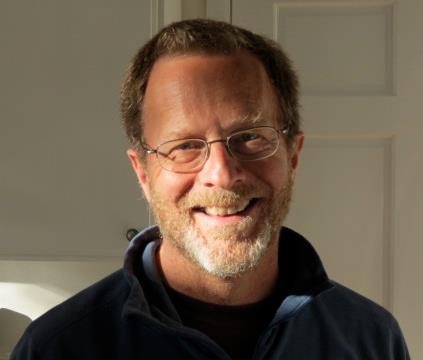 David Mason's books of poems include The Buried Houses, The Country I Remember, and Arrivals. His verse novel, Ludlow, was named best poetry book of the year by Contemporary Poetry Review and featured on the PBS News Hour. He is also author of essays on poetry and a memoir, News from the Village. The editor of textbooks and anthologies, David has had poetry, prose and translations published in many periodicals, including The New Yorker, Harper’s, The New York Times and The Times Literary Supplement, The Yale Review and The American Scholar. He is a former Fulbright Fellow to Greece, and served as Poet Laureate of Colorado from 2010 – 2014. He teaches at Colorado College. David Mason's books of poems include The Buried Houses, The Country I Remember, and Arrivals. His verse novel, Ludlow, was named best poetry book of the year by Contemporary Poetry Review and featured on the PBS News Hour. He is also author of essays on poetry and a memoir, News from the Village. The editor of textbooks and anthologies, David has had poetry, prose and translations published in many periodicals, including The New Yorker, Harper’s, The New York Times and The Times Literary Supplement, The Yale Review and The American Scholar. He is a former Fulbright Fellow to Greece, and served as Poet Laureate of Colorado from 2010 – 2014. He teaches at Colorado College. |
Thursday, March 23
| 10:30–12:30 p.m. | "The Development of Printmaking in America," Jo Hockenhull [Jinx Brandt], Kaneko Auditorium The art of printmaking in America blossomed in the 20th C. American artists learned the skills of printmaking from immigrant European artists who were displaced due to social and political upheavals. The Americans quickly integrated these techniques into their own personal artistic expression. University art departments, art schools, private presses and artists’ co-ops were formed to disseminate the technical information and train artists to incorporate printmaking media into their own image-making process. By mid-century, American artist/printmakers had created artworks beyond earlier boundaries. This established American printmaking as part of the new 20th C. avant-garde art movements.
|
| 1:30–3:30 p.m. | Great Decisions: "The Future of Europe," Bill Smaldone [Jeanette Flaming], Kaneko Auditorium The outcome of the United Kingdom referendum on EU membership sent shockwaves across the globe. It even caught British voters by surprise. The European Union has helped secure peace in Europe for the past 70 years. Now it faces an uncertain future. Amid a refugee crisis, lingering financial recession and the constant specter of terrorism, unity seems more imperative than ever. But the Brexit vote underscores the complexities of integrating an extremely diverse continent. What will post-Brexit Europe look like, and how can U.S. foreign policy adapt? http://www.greatdecisions.org/The Future of Europe
|
Week of March 27-31
SPRING BREAK—NO CLASSES |


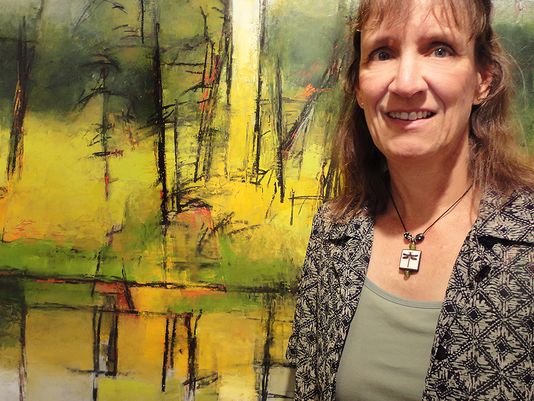 Biography: Cynthia Herron received her BFA in painting from Mount Allison University in Sackville, New Brunswick, Canada; her Teaching Certification in 1994 from Northern Arizona University in Flagstaff, Arizona; and her MFA in painting from The University of the Arts in Philadelphia, Pennsylvania in 2003. Since 1995 she has taught painting and drawing at the college level and currently teaches foundation art classes at Chemeketa Community College in Salem. Her paintings have won awards in regional juried shows and can be seen at Freed Gallery in Lincoln City, and Fog Forest Gallery in Sackville, New Brunswick, Canada.
Biography: Cynthia Herron received her BFA in painting from Mount Allison University in Sackville, New Brunswick, Canada; her Teaching Certification in 1994 from Northern Arizona University in Flagstaff, Arizona; and her MFA in painting from The University of the Arts in Philadelphia, Pennsylvania in 2003. Since 1995 she has taught painting and drawing at the college level and currently teaches foundation art classes at Chemeketa Community College in Salem. Her paintings have won awards in regional juried shows and can be seen at Freed Gallery in Lincoln City, and Fog Forest Gallery in Sackville, New Brunswick, Canada. 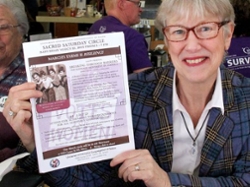 Gloria Holland is guest Director of this play. She has written and directed three different Readers’ Theaters for audiences in the Salem community. Since retirement from a 30 yr teaching career, Gloria has written a memoir and has facilitated a writing class. She is a member of AAUW Salem Branch, and has served in many leadership roles there. After a 20 year absence, she returned to the stage, taking parts in plays at Salem’s Pentacle Theater, as well as working on a stage production with Jo Dodge. She is very excited to have the honor of presenting this Readers’ Theater production to the members of ICL.
Gloria Holland is guest Director of this play. She has written and directed three different Readers’ Theaters for audiences in the Salem community. Since retirement from a 30 yr teaching career, Gloria has written a memoir and has facilitated a writing class. She is a member of AAUW Salem Branch, and has served in many leadership roles there. After a 20 year absence, she returned to the stage, taking parts in plays at Salem’s Pentacle Theater, as well as working on a stage production with Jo Dodge. She is very excited to have the honor of presenting this Readers’ Theater production to the members of ICL.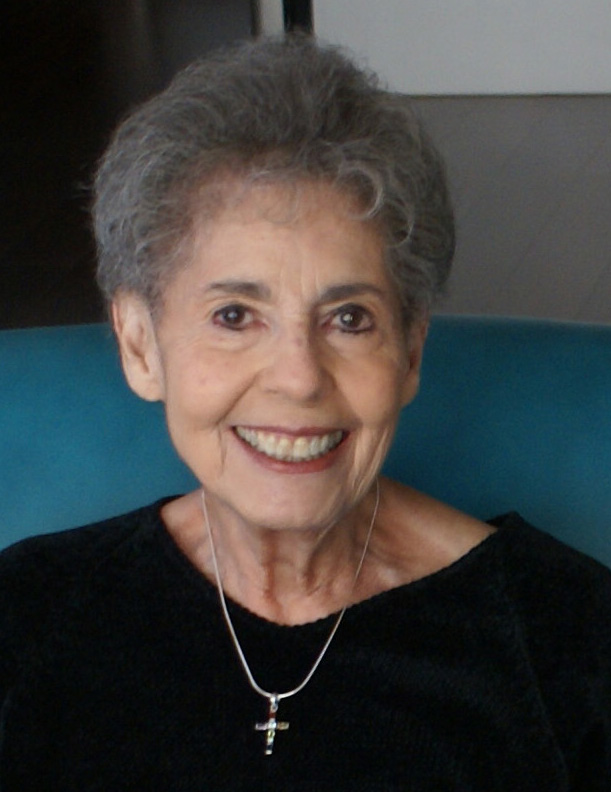 Misconceptions about the American Indian have long been ingrained in the non-Indian culture and still continue as evidenced by the following recently entered response in the comment section of a Siletz Indian blog, “They (the Indians) attacked and killed whites for no reason; that is why they were moved." Or the most common for Indians in Oregon, “They all died of diseases.” This presentation about the history of the Indians of Oregon is to clear up misconceptions and provide information related to the reaction to, the timing of, or result of the influx of Europeans. It will not be about their food (unless it pertains to the results of the influx), their homes, or art. It will not be a history of their first meetings with early traders and explorers, unless it helps to define them or their reactions to the influx. The Indians of Oregon are part of Oregon’s history. It is important to know, understand and recognize their history as part of Oregon’s history.
Misconceptions about the American Indian have long been ingrained in the non-Indian culture and still continue as evidenced by the following recently entered response in the comment section of a Siletz Indian blog, “They (the Indians) attacked and killed whites for no reason; that is why they were moved." Or the most common for Indians in Oregon, “They all died of diseases.” This presentation about the history of the Indians of Oregon is to clear up misconceptions and provide information related to the reaction to, the timing of, or result of the influx of Europeans. It will not be about their food (unless it pertains to the results of the influx), their homes, or art. It will not be a history of their first meetings with early traders and explorers, unless it helps to define them or their reactions to the influx. The Indians of Oregon are part of Oregon’s history. It is important to know, understand and recognize their history as part of Oregon’s history.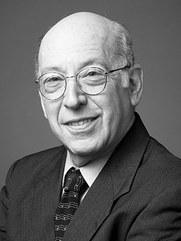 Dr. Mark Stoler, who holds a Ph.D. in History from the University of Wisconsin, is Professor Emeritus of History at the University of Vermont. An expert in U.S. foreign relations and military history, as well as the origins of the cold war, Professor Stoler has also held teaching positions at the United States Military Academy, the Army Military History Institute, the Naval War College, and-as a Fulbright Professor-the University of Haifa, Israel. He is the recipient of the University of Vermont's Kroepsch-Maurice Excellence in Teaching Award, the George V. Kidder Outstanding Faculty Award, and the University Scholar Award, as well as the Dean's Lecture Award for Outstanding Scholarship and Teaching, awarded by the university's College of Arts and Sciences. Professor Stoler also has been honored as an author when his Allies and Adversaries: The Joint Chiefs of Staff, the Grand Alliance, and U.S. Strategy in World War II received the Society for Military History's Distinguished Book Award for 2002. The book is one of several he has written or cowritten, including Allies in War: Britain and America Against the Axis Powers, 1940-1945; Debating Franklin D. Roosevelt's Foreign Policies, 1933-1945; Major Problems in the History of World War II; George C. Marshall: Soldier-Statesman of the American Century; and The Politics of the Second Front: American Military Planning and Diplomacy in Coalition Warfare, 1941-1943.
Dr. Mark Stoler, who holds a Ph.D. in History from the University of Wisconsin, is Professor Emeritus of History at the University of Vermont. An expert in U.S. foreign relations and military history, as well as the origins of the cold war, Professor Stoler has also held teaching positions at the United States Military Academy, the Army Military History Institute, the Naval War College, and-as a Fulbright Professor-the University of Haifa, Israel. He is the recipient of the University of Vermont's Kroepsch-Maurice Excellence in Teaching Award, the George V. Kidder Outstanding Faculty Award, and the University Scholar Award, as well as the Dean's Lecture Award for Outstanding Scholarship and Teaching, awarded by the university's College of Arts and Sciences. Professor Stoler also has been honored as an author when his Allies and Adversaries: The Joint Chiefs of Staff, the Grand Alliance, and U.S. Strategy in World War II received the Society for Military History's Distinguished Book Award for 2002. The book is one of several he has written or cowritten, including Allies in War: Britain and America Against the Axis Powers, 1940-1945; Debating Franklin D. Roosevelt's Foreign Policies, 1933-1945; Major Problems in the History of World War II; George C. Marshall: Soldier-Statesman of the American Century; and The Politics of the Second Front: American Military Planning and Diplomacy in Coalition Warfare, 1941-1943.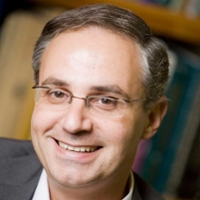 Ricardo De Mambro Santos is Associate Professor of Art History at Willamette University. His academic specialties are Italian and European Renaissance and Mannerism. He has presented to ICL several times in the past, always to great acclaim.
Ricardo De Mambro Santos is Associate Professor of Art History at Willamette University. His academic specialties are Italian and European Renaissance and Mannerism. He has presented to ICL several times in the past, always to great acclaim.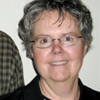 We all know at least a bit about the scientific achievements of Meriwether Lewis, William Clark, and Charles Darwin. We also know a tree named after David Douglas and some places around the world named after Alexander von Humboldt, but what did they do? What about the naturalist who collected copiously in relative obscurity, who some consider to be Darwin’s co-founder of the theory of natural selection? Or the sometimes-pirate whose book Darwin carried on the Voyage of the Beagle?
We all know at least a bit about the scientific achievements of Meriwether Lewis, William Clark, and Charles Darwin. We also know a tree named after David Douglas and some places around the world named after Alexander von Humboldt, but what did they do? What about the naturalist who collected copiously in relative obscurity, who some consider to be Darwin’s co-founder of the theory of natural selection? Or the sometimes-pirate whose book Darwin carried on the Voyage of the Beagle? 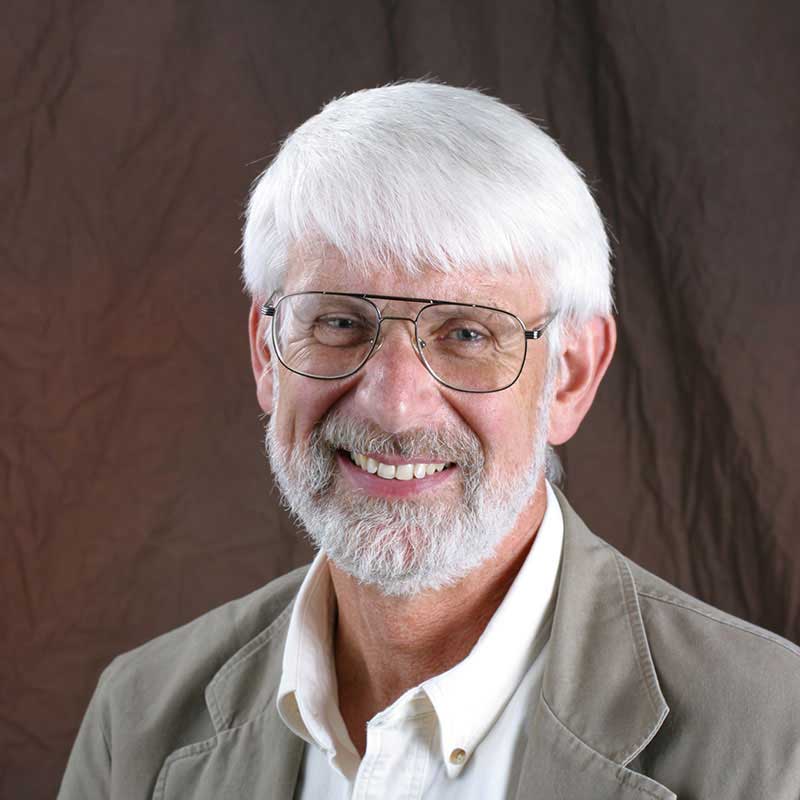 Ken Nolley taught English and Film Studies at Willamette before he retired in 2014. He first began teaching film classes in 1972, and developed courses in the history of cinema, avant-garde film, documentary, westerns and multiple other genres, and on many film directors. His scholarship grew out of those teaching interests, and he still serves on the editorial board of Literature/Film Quarterly.
Ken Nolley taught English and Film Studies at Willamette before he retired in 2014. He first began teaching film classes in 1972, and developed courses in the history of cinema, avant-garde film, documentary, westerns and multiple other genres, and on many film directors. His scholarship grew out of those teaching interests, and he still serves on the editorial board of Literature/Film Quarterly.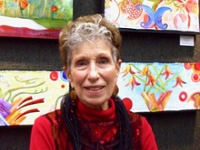 Born in Chicago, Jo Hockenhull now lives in Salem, Oregon. She attended the Art Institute of Chicago, Knox College, the University of Munich and the University of Iowa. She is Emerita Professor of Fine Arts at Washington State University, where she also served as Director of Women’ Studies and Associate Dean of the WSU Vancouver campus. She also taught at UC Davis and Linfield College. She is a founding member of Print Arts Northwest (P.A.N.). Her work can be found in Contemporary Printmaking in the Northwest, by Lois Allen.
Born in Chicago, Jo Hockenhull now lives in Salem, Oregon. She attended the Art Institute of Chicago, Knox College, the University of Munich and the University of Iowa. She is Emerita Professor of Fine Arts at Washington State University, where she also served as Director of Women’ Studies and Associate Dean of the WSU Vancouver campus. She also taught at UC Davis and Linfield College. She is a founding member of Print Arts Northwest (P.A.N.). Her work can be found in Contemporary Printmaking in the Northwest, by Lois Allen.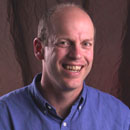 Bill Smaldone is E. J. Whipple Professor of History at Willamette University. He came to Willamette's History Department in 1991. In addition to general surveys in modern European history, he offers courses on German and Russian history, Latin American history, urban history, and the Holocaust.
Bill Smaldone is E. J. Whipple Professor of History at Willamette University. He came to Willamette's History Department in 1991. In addition to general surveys in modern European history, he offers courses on German and Russian history, Latin American history, urban history, and the Holocaust.